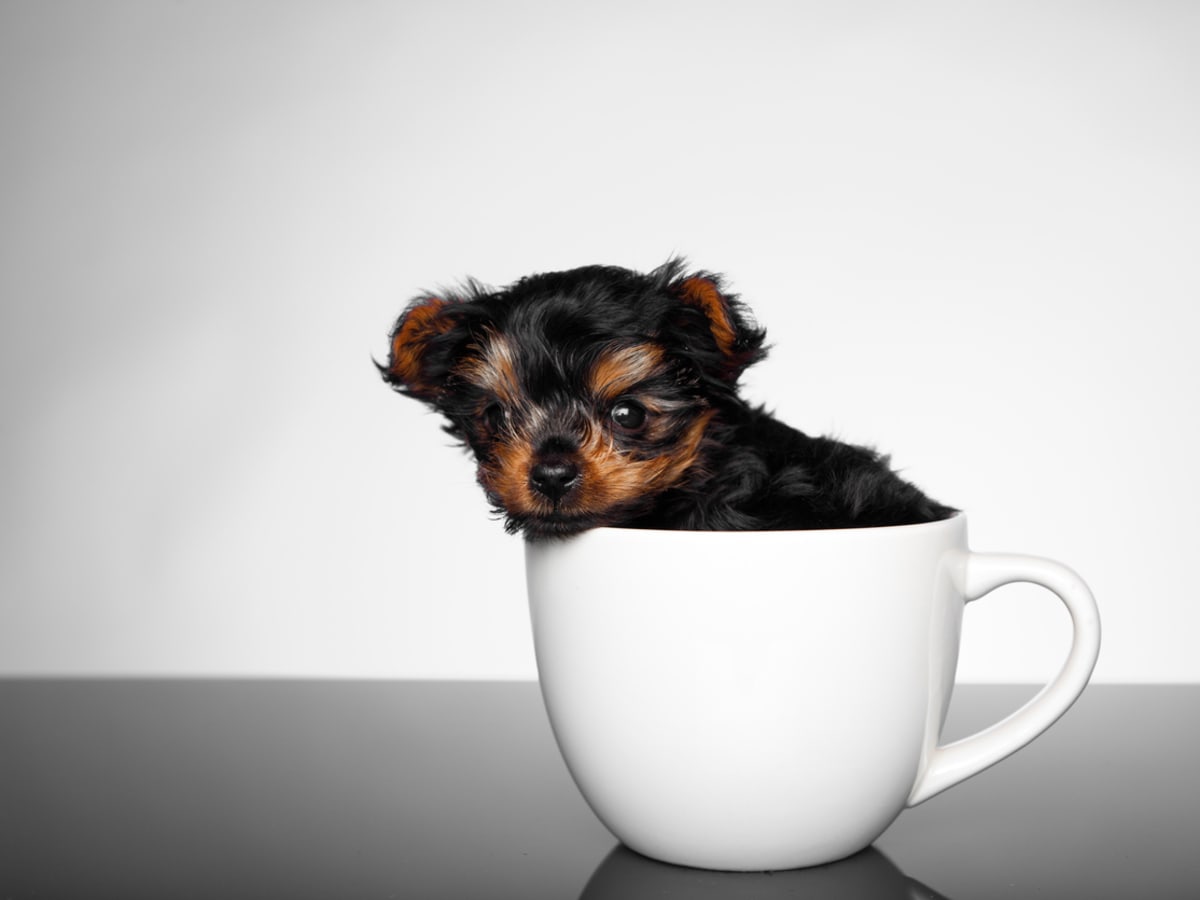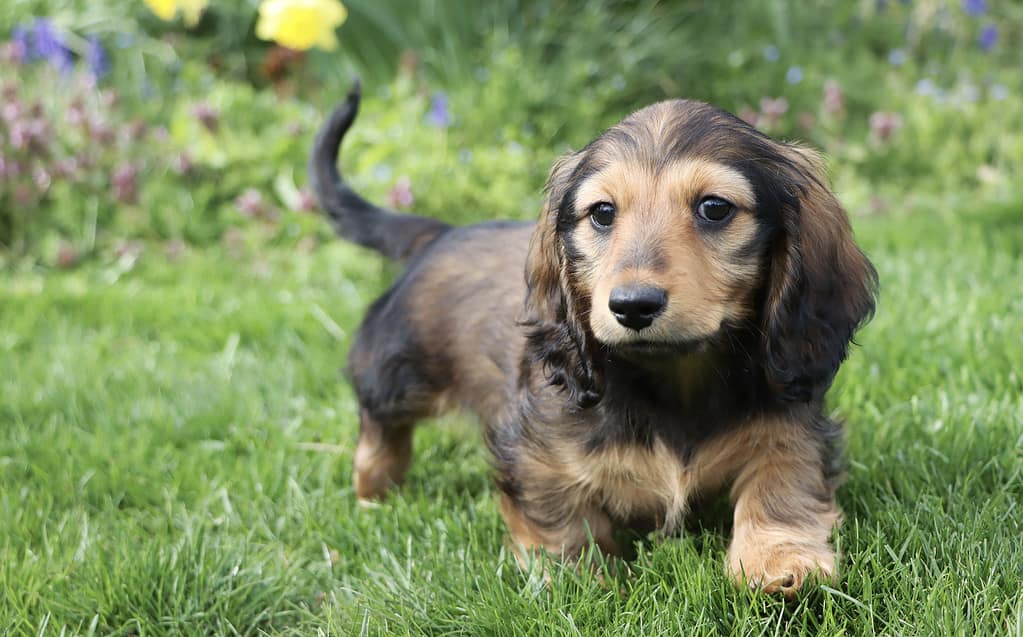Dogs have been our faithful companions for centuries, and among them, the dachshund holds a special place in our hearts. With their unique long, low-slung bodies and endearing personalities, they have captured the attention of dog lovers all over the world. In recent years, a new trend has emerged within the dachshund community – the teacup miniature dachshund. These tiny dogs, weighing less than 11 pounds, may seem like a delightful novelty, but the reality of owning one goes beyond their charming appearance. In this article, we will delve into the enchanting world of full-grown teacup miniature dachshunds, exploring their characteristics, special considerations for care, health concerns, and how to find a reputable breeder.
Contents
- 1 Understanding the Teacup Miniature Dachshund: Size and Characteristics
- 2 Caring for a Full-Grown Teacup Miniature Dachshund: Special Considerations
- 3 Health Concerns and Lifespan of Teacup Miniature Dachshunds
- 4 Finding a Reputable Breeder for a Teacup Miniature Dachshund
- 5 Bringing Home Your Teacup Miniature Dachshund: Tips for a Smooth Transition
- 6 Conclusion
Understanding the Teacup Miniature Dachshund: Size and Characteristics

The term “teacup” is not an official breed designation, but rather a descriptor used to denote dachshund puppies of exceptionally small size. The American Kennel Club (AKC) recognizes two varieties of dachshunds – standard and miniature. Standard dachshunds weigh between 16 and 32 pounds, while miniatures weigh between 11 and 16 pounds. Teacup dachshunds fall under the miniature category, typically weighing less than 11 pounds. This significant difference in size is a result of selective breeding, where smaller individuals are often targeted for their desirability.
Teacup miniature dachshunds have the same distinctive features as their standard and miniature counterparts, including their long, low-slung bodies with short legs, floppy ears, and expressive eyes. They come in three coat types – smooth, wirehaired, and longhaired, and a variety of colors, including black, tan, red, and dapple. However, their tiny size makes them stand out from the crowd and adds to their undeniable charm.
The Personality of Teacup Miniature Dachshunds
Teacup miniature dachshunds have a big personality packed into a small frame. Despite their diminutive size, they are confident, independent, and assertive dogs. They are known for their bold and fearless nature, often having no qualms about taking on larger dogs. They have a strong prey drive and may be prone to chasing smaller animals, so it’s essential to keep them on a leash when outside.
These tiny titans also have a stubborn streak, which can make training a challenge at times. However, with proper socialization and positive reinforcement techniques, they can learn to be obedient and well-mannered companions. Teacup dachshunds are loyal and loving towards their owners, but they may take time to warm up to strangers. They make excellent watchdogs and will alert you to any potential danger with their loud, deep bark.
Caring for a Full-Grown Teacup Miniature Dachshund: Special Considerations

Owning a full-grown teacup miniature dachshund comes with its unique set of considerations. While they may seem like low maintenance dogs due to their size, they require special care to thrive.
Diet and Exercise
Due to their small size, teacup miniature dachshunds have a faster metabolism compared to larger breeds. This means they need to eat more frequently to maintain their energy levels. It’s recommended to feed them three to four small meals per day instead of two larger ones. High-quality, nutrient-dense food specifically formulated for small breeds is essential to meet their nutritional needs.
Exercise is crucial for all dogs, regardless of size, and teacup miniature dachshunds are no exception. However, due to their short legs and long spine, they are prone to back problems, making it essential to be cautious with their exercise routine. Short, regular walks or playtime in a fenced yard are suitable for these dogs. Avoid activities that involve jumping and excessive running, as they can strain their backs and cause injury.
Grooming
Teacup miniature dachshunds have a variety of coat types, but all require regular grooming to keep them healthy. Smooth-coated dachshunds have a short, shiny coat that’s relatively easy to maintain with weekly brushing. Wirehaired dachshunds have a rough, double coat that needs to be brushed at least twice a week to remove dead hair and prevent matting. Longhaired dachshunds have a soft, silky coat that requires daily brushing to prevent tangles and mats.
Additionally, all dachshunds are prone to ear infections due to their floppy ears that trap moisture and debris. Cleaning their ears regularly with a veterinarian-recommended solution can help prevent infections. Nail trimming should also be a part of their grooming routine since long nails can cause discomfort and affect their gait.
Health Concerns and Lifespan of Teacup Miniature Dachshunds

One of the most significant concerns surrounding teacup miniature dachshunds is their health. Due to their small size, they may be more prone to certain health issues compared to standard or miniature dachshunds. These include:
- Back Problems: Due to their elongated spine, dachshunds are more susceptible to back problems such as intervertebral disc disease (IVDD). This condition occurs when the discs between the vertebrae rupture or herniate, causing pain and mobility issues. Prevention is key with this issue, and owners must take care to avoid activities that can strain their dog’s back.
- Hypoglycemia: This condition occurs when a dog’s blood sugar levels drop too low, causing weakness, seizures, and even death. Teacup dachshunds are at a higher risk of hypoglycemia due to their faster metabolism, and it’s crucial to monitor their diet and feeding schedule closely.
- Dental Issues: Small breeds are more prone to dental problems, and teacup miniature dachshunds are no exception. Their tiny mouths may have crowding issues, making them prone to tartar buildup and tooth decay. Regular brushing and dental check-ups are essential for maintaining good oral health.
- Respiratory Problems: Teacup dachshunds may also be at risk for respiratory problems due to their small tracheas and delicate airways. They may be prone to breathing difficulties and should avoid activities that involve excessive panting or stress on their respiratory system.
Despite these potential health concerns, with proper care and regular veterinary check-ups, teacup miniature dachshunds can live long and healthy lives. The average lifespan of a teacup dachshund is between 12 to 16 years, so be prepared for a long-term commitment if you decide to bring one into your family.
Finding a Reputable Breeder for a Teacup Miniature Dachshund

The demand for teacup miniature dachshunds has led to an increase in the number of breeders offering these tiny pups for sale. However, not all breeders are equal, and it’s essential to do your research before purchasing a teacup dachshund. A reputable breeder will prioritize the health and well-being of their dogs over profits and will provide you with documentation of health screenings and genetic testing of the parents.
Avoid purchasing puppies from pet stores, online marketplaces, or puppy mills, as they often prioritize profit over the welfare of the dogs. These puppies may have underlying health issues or come from parents with genetic health conditions, leading to a lifetime of medical problems.
The best way to find a reputable breeder is through referrals from local dachshund clubs or breed-specific rescues. You can also attend dog shows and speak to breeders directly, asking about their breeding practices and meeting their dogs in person. Remember to trust your instincts and walk away if something doesn’t feel right.
Bringing Home Your Teacup Miniature Dachshund: Tips for a Smooth Transition

Congratulations, you’ve found a reputable breeder and are ready to bring home your teacup miniature dachshund! Here are some tips to make the transition as smooth as possible for both you and your new furry family member:
- Set up a designated area for your dachshund: A crate or playpen can provide a safe space for your pup to rest and relax when needed.
- Puppy-proof your home: Remove any potential hazards such as electrical cords, toxic plants, and small objects that your curious pup may ingest.
- Be patient with potty training: As with any puppy, accidents will happen. Consistency and positive reinforcement will help your dachshund learn where to go potty.
- Socialize early: Expose your puppy to different people, places, and experiences to help them develop into well-adjusted adults.
- Plan for regular veterinary check-ups: Regular visits to the veterinarian are crucial for monitoring your dachshund’s health and addressing any concerns promptly.
Conclusion
In conclusion, the allure of the miniature dachshund has led to an increase in the demand for teacup miniature dachshunds. However, before bringing home one of these tiny titans, it’s essential to understand their unique characteristics, special care requirements, and potential health concerns. Finding a reputable breeder and providing proper care and socialization can help these small but mighty dogs live long and healthy lives as beloved companions.
